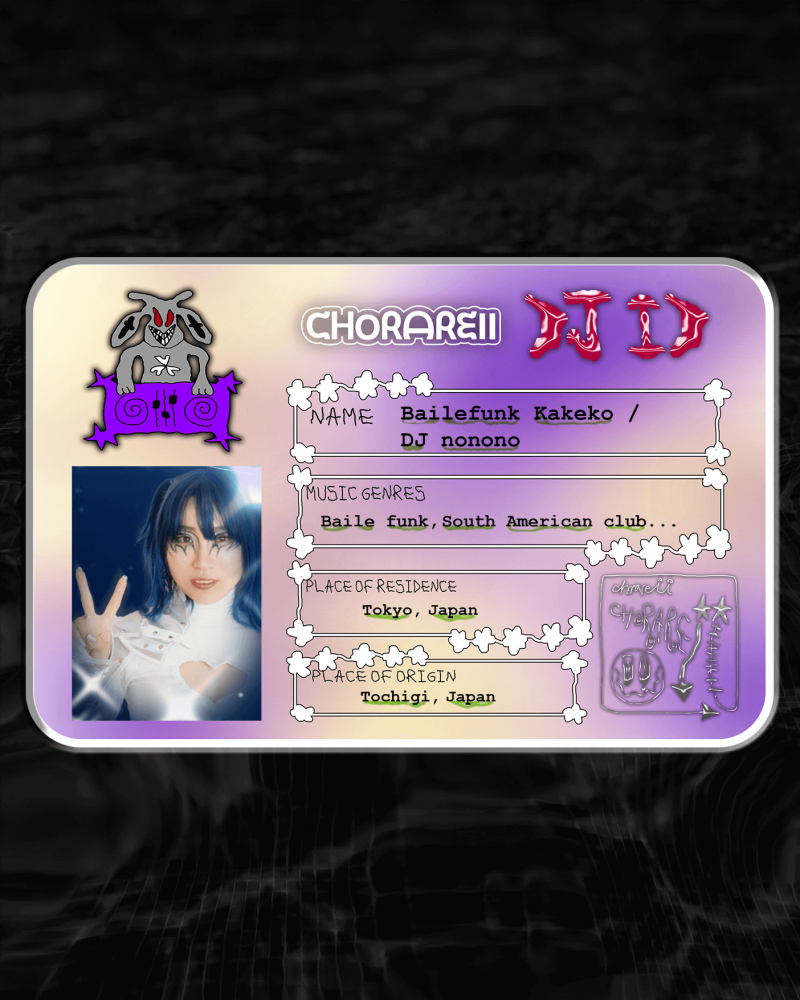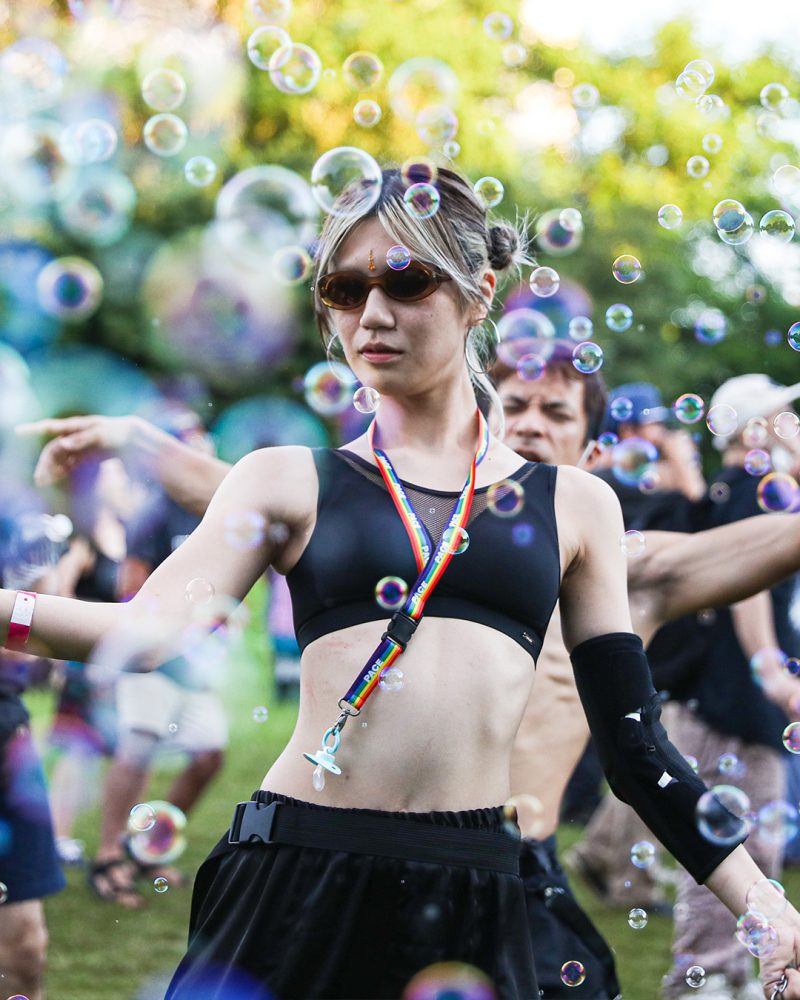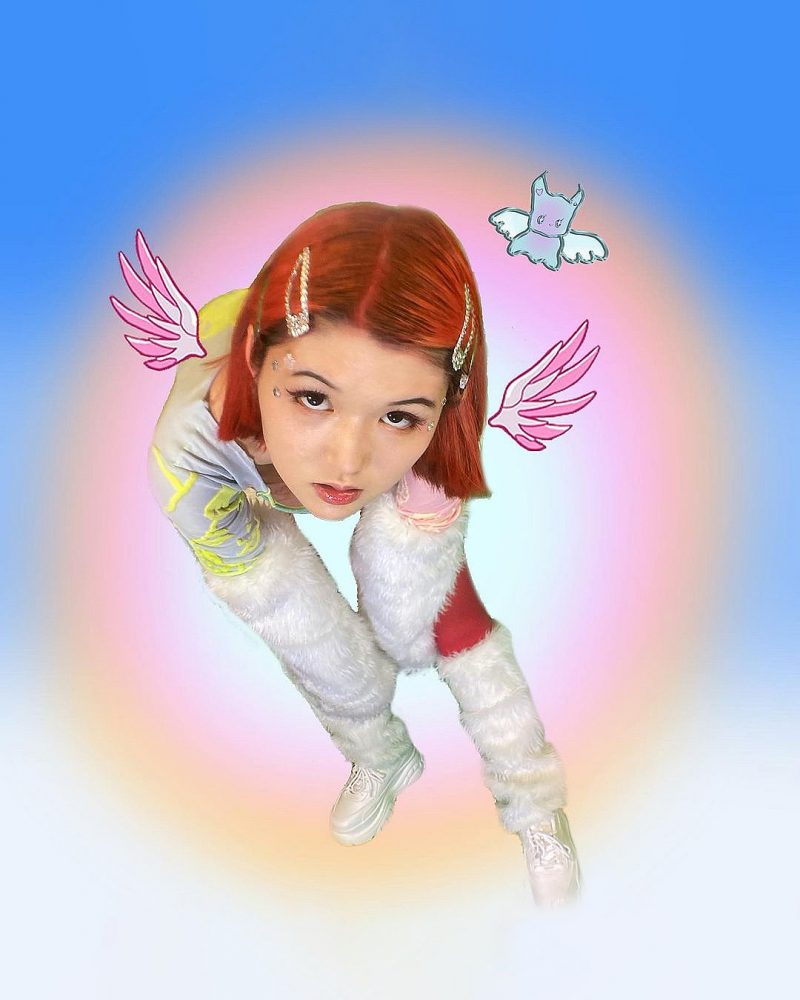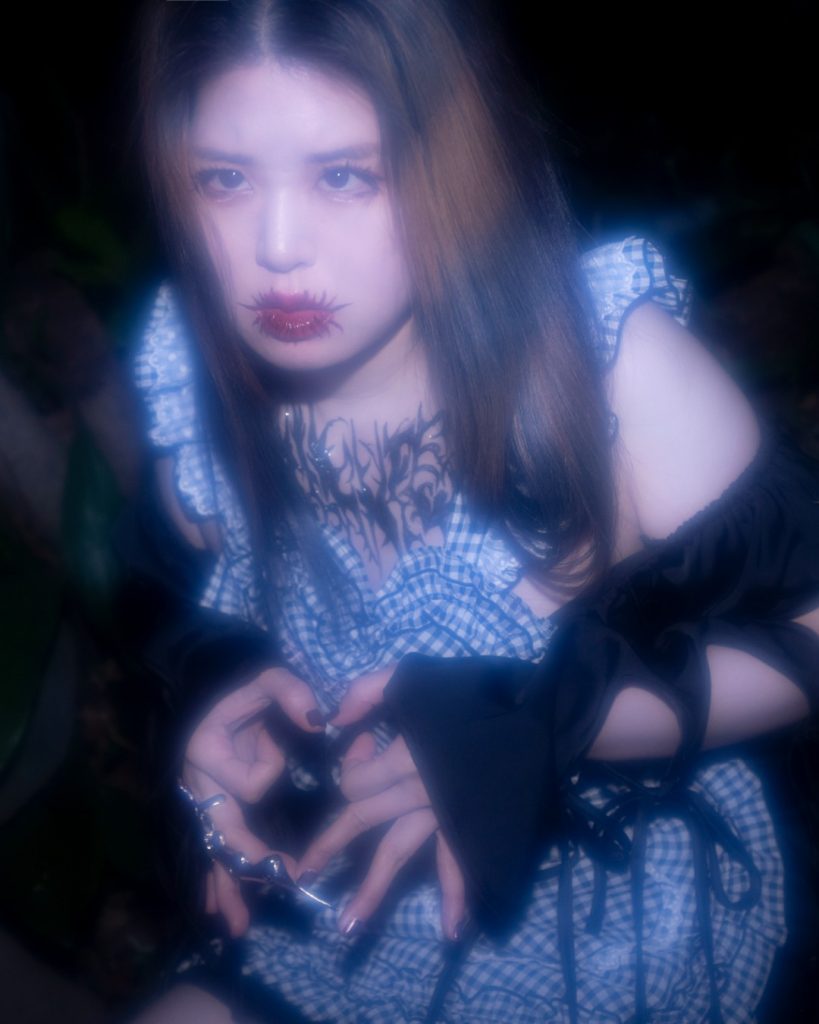
valknee (@valknee) demonstrates with her music that sweetness doesn’t mean weakness. The artist makes the term ‘rapper’ her own almost as a claim that hip-hop, at this stage of the genre, can and should be something else.
In the Japanese hip-hop scene, male dominance is all too evident, both in terms of the most promoted artists and the rap style itself. valknee reverses this by incorporating aesthetic and sonic influences from iconic, typically Japanese subcultures into her music: the gyaru, the Harajuku teen culture, 90s Japanese pop and eurobeat, and even idol music.
In addition, valknee is part of Zoomgals, a collective formed by women and non-binary gender artists who came together to support each other and make themselves visible. I spoke with valknee to know more about this different vision of hip-hop on the occasion of the release of her EP called precisely ‘vs.’.

Chorareii: First, introduce yourself!
valknee: My name is valknee (@valknee). I live in Tokyo. When I was in elementary and junior high school, I went to a Japanese school in Seoul, Korea.
Later I went to an art college. I started music around that time, and now I make music while working in an office. I have never belonged to a label or a company, I am independent.
In your artist biography you often include ‘rapper,’ ‘I rap.’ What do you think is the concept of ‘rap’ or ‘rapper’ in our generation? Do you think it has changed compared to previous generations?
In previous generations, it seems that many people rapped about life itself or wrote lyrics about ‘rapper-like culture’.
Recently, there seem to be more rappers with a style that is not fixed there. It has changed quite a bit in the last 10 years or so, during the time I have been active in rap since I fell in love with it.

I was so happy when I saw your song ‘BET ME!’ on the Pitchfork Selects playlist. Congratulations! Before that, I came across a playlist called “Kawaii bad bitches only!” that included several of your songs. I do believe that your music combines sweetness and power. Is that your personality?
I think I have a strong personality. When I do something with other people, I often clash with them.
Perhaps it is because I have this type of personality that, on the other hand, I admire cute things. I love cute motifs, things that young children would like, animals, and people who wear cute clothes but actually have a tough heart.
It’s interesting that you mention opposite feelings because precisely your last EP is called ‘vs.’ Tell me about it!
The new EP “vs.” is about playing against various things in life. The opponents are society, the system, and yourself.
The beat is a drastic change from past works, and the music is hard dance music, so it is perfect for before work, when exercising, or when going out.
This time, I collaborated with four producers. In addition to hirihiri and RYOKO2000’s piano man, with whom I have been working together for a long time, Benxni, who is a member of STARKIDS and supported by youth, and DC Mizey, who worked as Lady’s Only, a DJ and sound team in Tokyo.
The visuals were shot with art director Aoi Itoh in my grandmother’s garden.
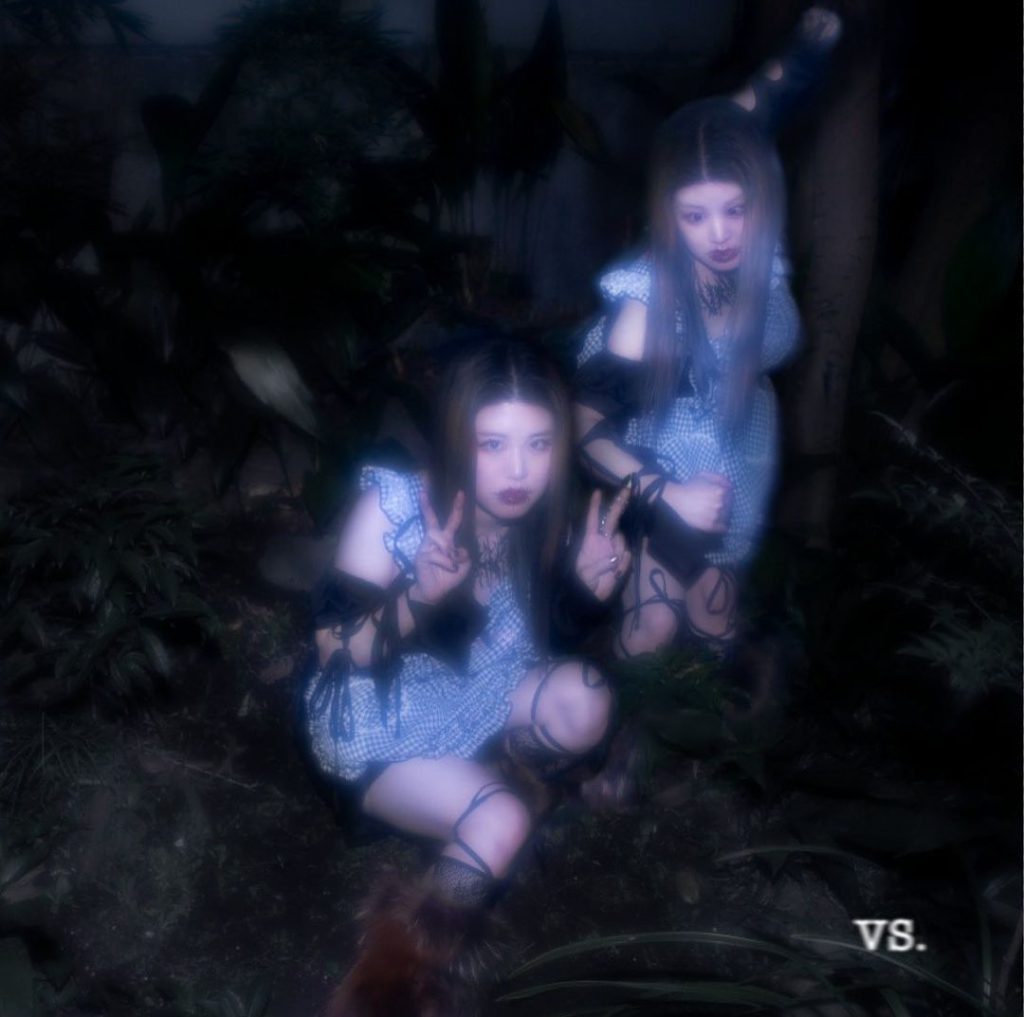
In the ’90s, Japanese teen culture and the Harajuku aesthetic became a global reference. Your music and aesthetics have many references to that culture. Why do you think you are still inspired by this even decades later?
I was in elementary school at the time, and I really admired the fashion from manga and magazines. However, it was difficult for me to recreate it with my own clothes, and I was not satisfied. I used to wear clothes I got from the supermarket.
Now that I am working and have a little bit of money at my disposal, I am able to dress as I like. I am not afraid to wear what was popular when I was a high school teenager when Harajuku fashion culture developed. Mori girl, a little bit goth, a little bit devilish!
I want to cherish the pure feelings I have had since I was a child, so I like to touch on things I used to like. Once I like something, I can’t get enough of it. I still play a game that came out in the ’90s called NINTENDO64 Star Fox 64!

In becoming valknee, you were influenced by the gyaru subculture. What has subculture given you?
It’s only recently that I’ve been able to think about the world, what I want to do, what I’m good at, and what my personality is like.
My mind was a bit fuzzy until I was about 27 years old. But even if I couldn’t find what I wanted to do, I was confident in myself anyway. Maybe I was able to keep myself strong and proud because the subculture showed me various values.
Now that I’m using my head and I understand things, I can see what I want to do. Confidence and self-love have always been the same, so that is fundamental.
You collaborate as a lyricist with the hip-hop idol group lyrical school and are a fan of idol groups from Japan and Korea. I know very little about the idol world, can you give me some recommendations?
The Korean boy group Stray Kids write their own songs and are very talented. They rap well and their musicality is edgy and interesting.
MAMAMOO is a girl group that is close to my age, skilled, and has a strong message. I also like HYUNA for similar reasons to MAMAMOO, but they are more provocative and hard to take my eyes off.
I am empowered by women who have been active for a long time.
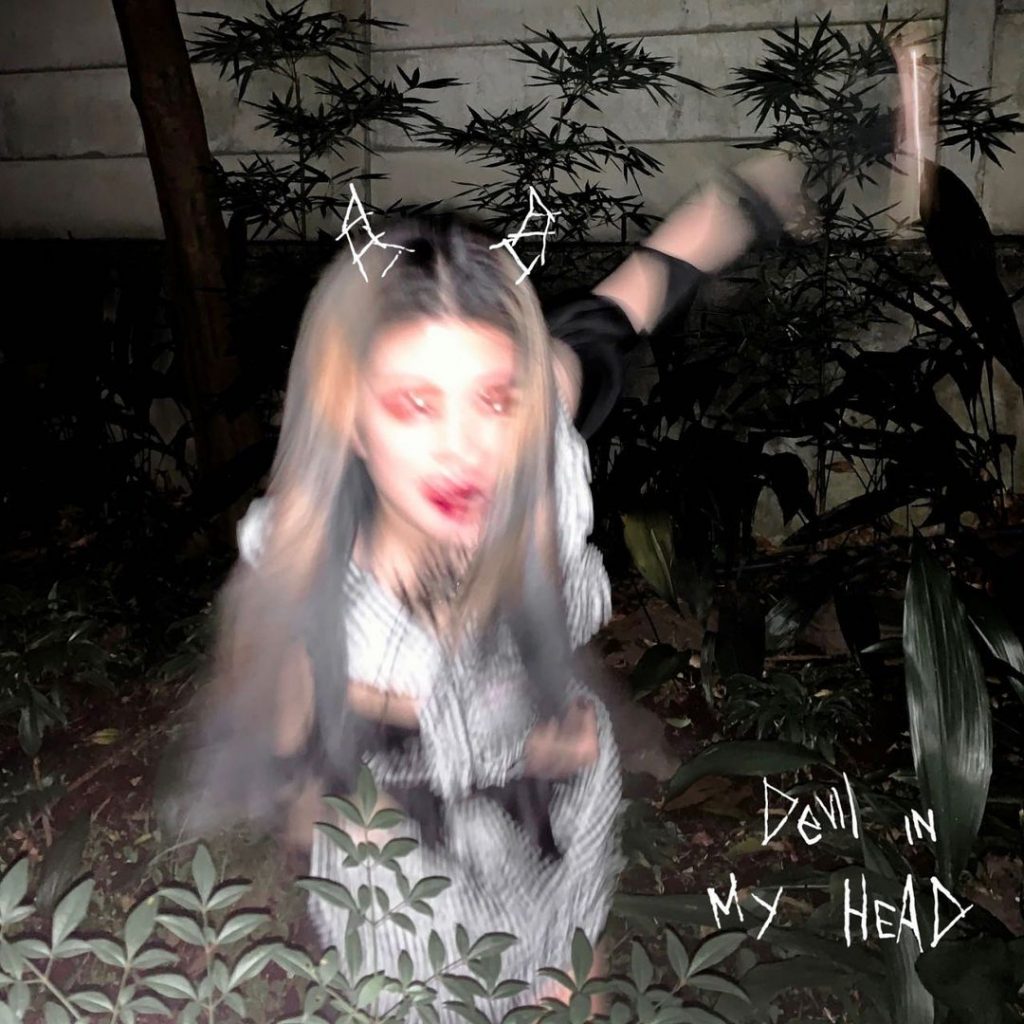
Talking about empowerment, that’s what I felt the first time I saw Zoomgals live, the group where you are a member. It was amazing to watch so many powerful female and non-binary rappers on stage. Why did you decide to come together?
It was around the time the coronavirus was starting to spread, I had to stay home, and I was worried. I wanted to do a cheerful project that everyone would find interesting, so I created a song online called ‘ZOOM.’ Before that, I used to think that when you do a feat. with someone, you shouldn’t co-create unless the ideology and vibes are a perfect match. After the COVID-19 pandemic, I decided to collaborate with them at once without being too cautious.
Not many female rappers have gained popularity in the Japanese hip-hop scene. This is especially true when looking at the official playlists of the platforms. Even if they make it to the playlist, if they haven’t internalized the “traditional hip-hop style,” they disappear from the playlist the following week.
If it’s something that has a masculine strength to it, it will remain relatively high up the list for a long time. I think it’s because they are made to meet the needs of the listeners. Similarly, songs by male artists that are introspective, gentle, and melodic do not remain except for a few artists. Is it because they are judged as not being masculine enough?
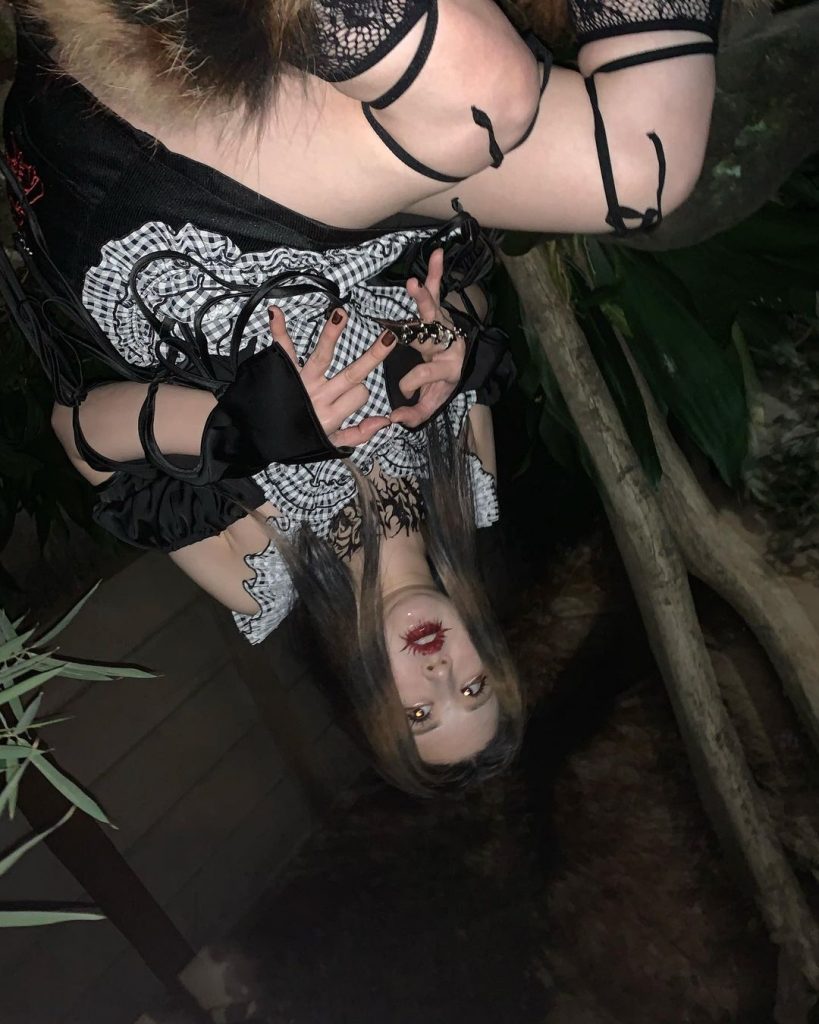
Because of this, there are many female rappers who don’t choose “hip-hop-ness” and move in a direction closer to pop. Considering such a situation, I wondered what would happen if we had a different way of thinking, but still largely in solidarity. I wanted to try it out.
As a result, [as Zoomgals] we had a great response that we had never experienced before, and we were able to create something interesting as a work of art, so we discussed it together and produced some songs as a group.
We are now working hard on our individual activities, but Zoomgals still serves as a gateway to many listeners.
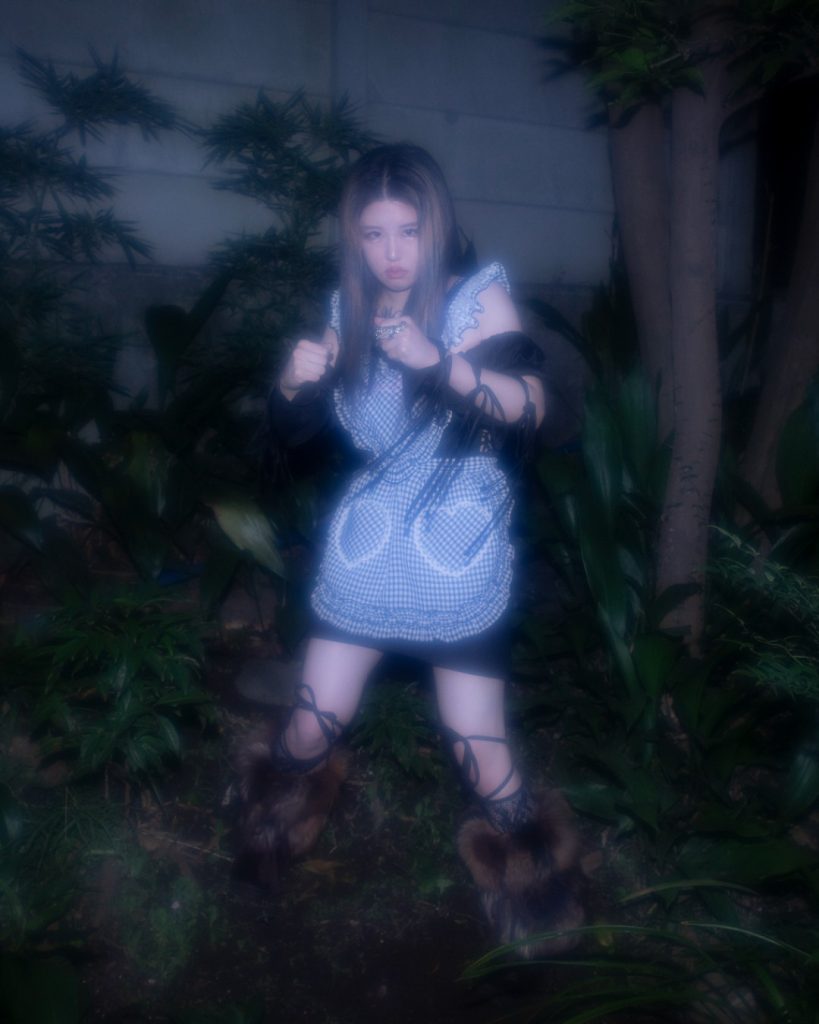
Based on your personal experience in music and with Zoomgals, what positive changes do you think would come from more female artists joining the scene?
If we inspire each other, exchange information, and specifically solidarity, more artists will be active for a longer period of time.
I have seen many female artists quit. I believe that this is not only a matter of individual vitality but also because of the male-dominated and male-judgemental environment.
It is the same as the general corporate structure in Japan. Strength is required, you don’t make the playlist, you don’t get booked for events, you are sexually harassed in the comments section, etc. It is difficult to have a long and enjoyable career in such an environment.
I want things to gradually flatten out, even if it takes time. I want to take action to make that happen.
Listen to valknee’s music and follow her on social media
(((ง’ω’)و三 ง’ω’)ڡ≡ ☆⌒ミ((x_x)



